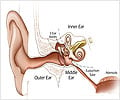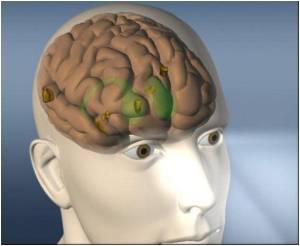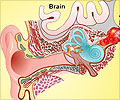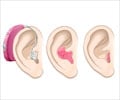Regardless of whether the tubes are left in place or removed before implantation, a history of ear tubes to treat infections does not appear to adversely affect children with cochlear implants.

Christopher F. Barañano, M.D., and colleagues at the University of Alabama at Birmingham Medical School studied 78 ears of 62 children (average age 3.2) who received ear tubes before cochlear implants. In 46 (59 percent) of the cases, the tubes were removed before cochlear implantation surgery, whereas in 32 cases (41 percent), the tubes were kept in place until cochlear implantation.
Forty ears (51 percent) received more than one set of tubes; 10 ears (22 percent) in which the tubes were removed before cochlear implant surgery required additional tubes later, compared with six ears (19 percent) in which the tubes remained in place. All eardrums in which the tubes were removed before or during cochlear implantation healed. Three persistent eardrum perforations required surgical treatment. However, there were no cases of meningitis or removal of cochlear implants because of infection.
"The minimization of potential infectious complications is a priority for the cochlear implant surgeon who is operating on a child with a history of myringotomy tube placement," the authors write. "While manipulation of the tympanic membrane [eardrum] with myringotomy tube insertion, myringotomy tube exchange or perforation repair is not without risks, in the current study the management of the myringotomy tube before cochlear implantation did not adversely affect outcomes."
Cases of otorrhea—discharge from the ear—and eardrum perforation were successfully managed with standard surgical and medical therapies and typically did not require more extensive procedures. "Specific myringotomy tube management over the course of cochlear implantation does not appear to adversely affect the final outcomes in cases involving pediatric ears."
 MEDINDIA
MEDINDIA




 Email
Email










